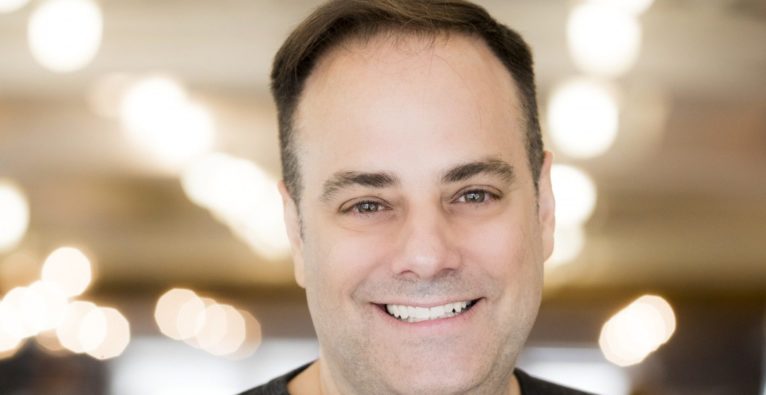✨ AI Kontextualisierung
The similarities between WeAreDevelopers and Stack Overflow are obvious: From the constantly growing developer community to the business model of a hiring platform. In our Interview during the conference CEO and co-founder Joel Spolsky talked about the development of his portal, coming up with a business model and trends in the developer scene.
+++ Steve Wozniak bei WeAreDevelopers: “AI wird überbewertet” +++
All over the world programming festivals and conferences like WeAreDevelopers have grown bigger and bigger. Do you have an explanation for this?
Yes. It used to be that in IT all the money was spent for hardware. There wasn’t so much for the software developers to specify in term of money. And that stuff was specified by system administrators. But today the programmers make decisions – about which API to use, which libraries to use, what cloud system to use. And that is the new purchase decision, right? Today companies find themselves paying a hundreds of thousands for a contract, because the programmer has made a programming decision. The companies find themselves asking: “Why are we paying this again?“ And the answer often is: “Well, because your whole platform is built on that.“ “When did we decide on this?“ “That was maybe 3 architects ago.“ So that’s the reason – the decisions have shifted into programmer’s decisions.
Can you tell me a little bit about Stack Overflow’s business model as a hiring platform? When did you come up with that and how did you implement it?
We were trying to figure out how do we pay for this thing. We created Stack Overflow and we didn’t want to have, you know, animated video that displays for 30 seconds. We wanted a better system and it occurred to us that advertising for a job is not really seen as advertising – the ad is not proposing that you pay the company money – so it usually creates a more respectful tone.
The truth is: I remember, when we started Stack Overflow, Jeff (Jeff Atwood Annahme d. Red.) and I said, lets decide that everything can be public, but let’s not tell people about the job listing thing, because it was at the time not well known, that recruiting developers could be a high revenue business. And indeed, it turned out to actually be a very good business. Being able to recruit developers and sort them by where they live, what technologies they know and so on – it’s much better to do this at the place where developers actually go and not on a standalone website for getting a job.
Over time our model has developed. It started of as a very simple job listing section, then we implemented the ability to create a profile. Employers could from then on search the profiles. That created the two main parts of the job platform. Later on we added a whole bunch of recruitment branding, where you have the ability to do marketing towards developers you might employ. Over the years it has gotten more and more sophisticated. It’s a nice business and really actually benefits the platform. The developers on Stack Overflow know that the things they are doing on Stack Overflow will be seen by potential employers. So it’s a chance to show off and do an extra good job and that befits the person who is asking a question.
Stack Overflow went online in 2008. How did the work of a software developer change in those 10 years?
The biggest thing is that programmers are working at this higher level of abstraction now. They used to have one tool that they where specialists in – C or visual basic or java. And the biggest change that you see across the field of programming is APIs and cloud services and all those pieces that you can bring together very easily. That gives developers much more power. So if you want to display a map, accept credit cards or cause a drone to fly over somebody’s house, you can do that with very simple API calls and cloud services sometimes. And it’s very easy, but the trouble is, you can’t really be an expert in all these systems, because they are too complicated. So we moved into a very powerful position where we can build things out of very fancy building blocks, but we don’t really necessarily understand these building blocks. That is also where Stack Overflow is helping. I think that is the biggest change – it’s like the difference between lego blocks in the 1950s and now.
Are there any differences today in terms of the location when it comes to working in programming?
There is kind of a continuum of workplace formality. It starts in San Francisco with the lowest formality. It’s more formal in New York, more formal in London and once you get to Germany and Austria it’s very formal.
How does this formality manifest in workplaces?
One thing I can think about is how much autonomy programmers have and if they really are thought of creators. They are the creator. The question is wether the organization recognizes that and if they hold up the developer as the star of the show as they would in a silicon valley company. You can also see companies where they see the developers as implementing the idea of a business genius. And in fact, even if a developer is given very specific instructions, they are still making most of the decisions themselves. And those details are the ones that distinguish good products from awful ones. So one of the reasons why silicon valley is so successful is because it recognizes the developers as being in the center of creativity.
Localized workplace vs. remote workplaces – what is your opinion on that?
We have at Stack Overflow an almost entirely remote engineering team – people that work from home. But there are two I’ll say: One is they work at the same time during the day. And second: Everybody is online. We don’t have some people online and some offline.
I was having a conversation with somebody from IBM the other day. IBM was very famous for telling everybody about telecommunicating and remote work and all this stuff and then they changed their mind, did a huge U-turn and they said: „Yeah, actually we will try to locate every single person in IBM offices from now on.“ They didn’t have a good explanation for this. And as I was speaking to him, it became clear to me, that at IBM they didn’t distinguish between a team of 8 people in an office and then one person works from home – and all those 9 people working from their homes. Because in the case of IBM those 8 people talk at lunch, they sort things out and so on and the ninth person has a lot of trouble keeping the communication up to these 8. The 9 people that are all just working from home, they all have to go online, they will all be in online-meeting rooms and that works fine. Similarly they didn’t distinguish between team where one person is in Hyderabad, India and eight people in the US – and teams where every member is the in US. Because with that person in India you can’t have a back and forth very quickly. The first things is, you use an email, you wait for two days for the answer, send another email, you go back and forth and after a while you’re saying we’re going to have to have a phone call and in the third week somebody stays up until 2 a.m. and has this phone call. So, those two things – the time zone and everybody being online – are the important differentiators between the ability to successfully have a remote team and not successfully.





